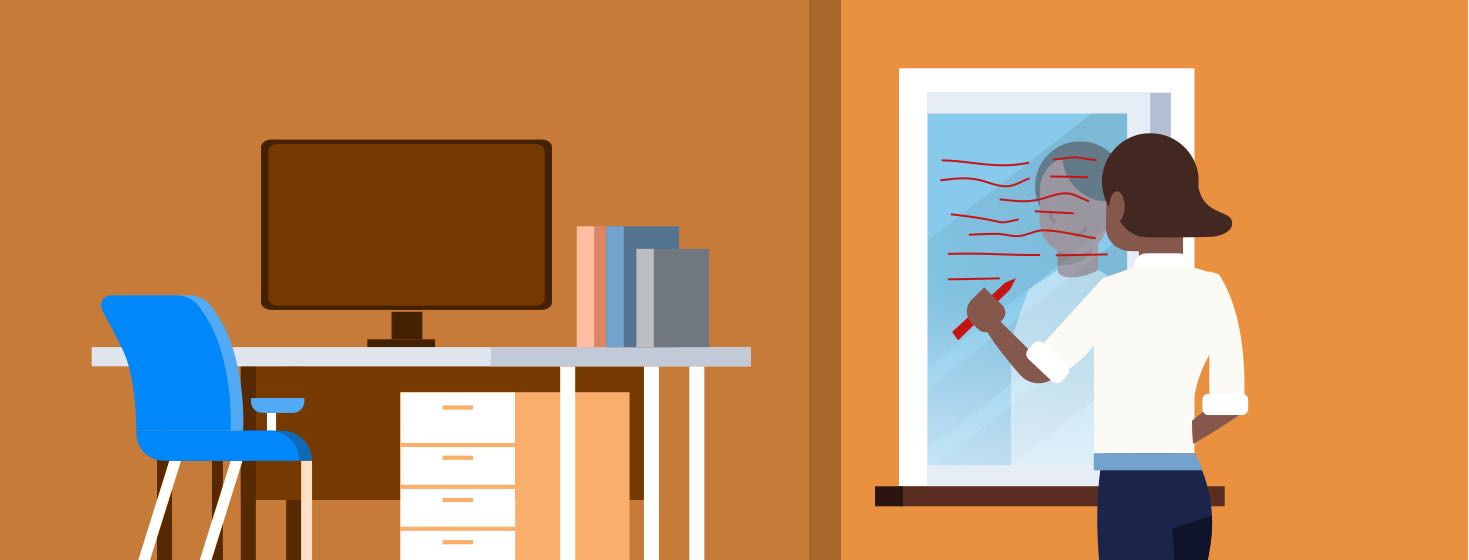Watch Me Work!
I began working when I was 15 years old, at a fast food Italian restaurant called Fazoli’s. At Fazoli’s I was a cashier and a service leader. As you can probably imagine being a cashier was very difficult for me due to the small font on the register and printed materials. I often used my humor as a buffer when I needed to ask for assistance.
Asking for help
Prior to my first job, I felt like it’s always been easy for me to ask people to help me see something far away, once I got to know the person. However, once I began working, I became ambivalent about asking for help. I didn't want my employer or colleagues to think that I was less qualified because I needed additional assistance.
Relying on memory
At times I would try to remember everything on the register prior to beginning my shift so that when people would order, I would select the appropriate button based off memory rather than sight. I looked forward to the days where I didn’t have to be on the register; being service leader was the best. I would walk around and ask guests if they wanted breadsticks, drop off and pick up food, and talk to the guests about their experience.
Starting anew
Eventually, I gained enough courage to inform my employer that being a cashier was not conducive to my visual impairment and that I would prefer being a service leader. My hours got cut because there was only a limited amount of time to be a service leader each day. I eventually left Fazoli’s and began working at Designer Shoe Warehouse as a sales floor representative and cashier. I know, I know; cashier again, didn't I learn my lesson? This time was different because all I had to do was scan barcodes.
Low vision accommodations
After I completed high school I went off to college and became an orientation leader. To date, this was one of my favorite positions. Once I got the job, I shared with my employer that I was legally blind and that I would need documents printed in larger font. My employer was very accommodating and encouraging. They brainstormed with me about other accommodations that I might need such as a larger clipboard to accommodate my larger forms.
Leading the blind
As an orientation leader, I had the opportunity to welcome incoming freshman. I was able to share with them the ins and outs about living and learning on campus. What I loved the most about this position was that I was “leading the blind," figuratively speaking. These students had no idea what was ahead of them and they needed someone to assist with guiding them through this journey.
Working with vulnerable populations
Fast forward a few years later, I earned my first “big girl job," as a medical case manager (MCM). My role as an MCM was to eliminate barriers to care for individuals who are HIV+/AIDS. Although I struggled in the beginning with documentation, my biggest strength was building rapport with clients. I believe to this day that I am great at building rapport with individuals from vulnerable populations because I know what it’s like to need someone to intercede on your behalf. I know firsthand what it’s like navigating through social service systems and as a result of my first-hand experience, I am able to show compassion and empathy.
Moving up through the ranks
After a few years of being an MCM, I asked my supervisor for more responsibilities; I became a supervisor. Less than a year later I became a coordinator and currently supervise 5 people. To be honest, I was extremely insecure once I earned the coordinator position. There have been times in my life that I have felt less qualified because of my visual impairment because I had to ask for help due to it taking me a little longer to review documents. This was definitely one of those times. However, this was the furthest from the truth, my life experiences coupled with my degrees prepared me for this position.
Being understanding and making accommodations
During my initial supervision, I informed all of my supervisees that I was visually impaired and informed them of the adjustments that would need to be made in order for me to complete my job efficiently. They were very receptive and encouraging.
When I first started the position, I had a large whiteboard in my office where I would write my to-do list. A few months into the position I swapped out the whiteboard for a large mirror because it was important for me to look at myself daily and remind myself how DOPE I really am. I felt like as long as I remembered that, I would be able to conquer whatever came my way. At least, that’s the way I see it.

Join the conversation